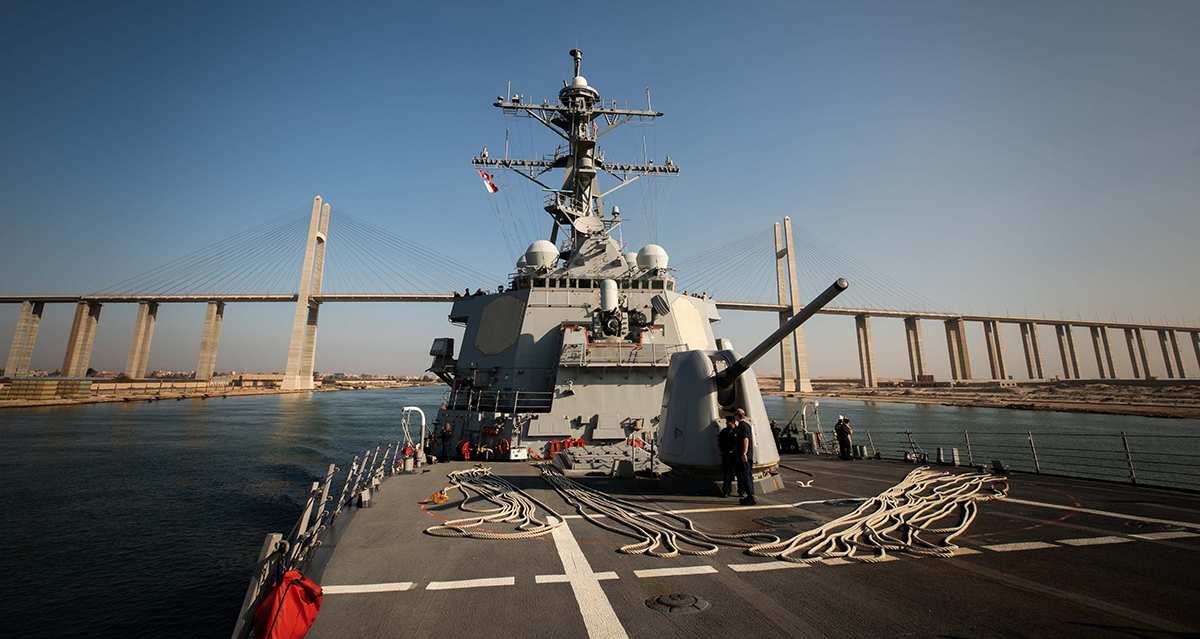The Unfolding Geopolitical Dynamics in the Red Sea Region


The Unfolding Geopolitical Dynamics in the Red Sea Region
In recent times, the Red Sea region has become a focal point for geopolitical shifts, with various nations vying for influence and control. The complex web of alliances, resource interests, and historical tensions has led to a situation where the Red Sea is not just a vital maritime route but also a potential hotspot for geopolitical conflicts. This article explores the key factors contributing to the unfolding dynamics in the Red Sea region and examines the potential security impact of these developments.
Historical Context: A Breeding Ground for Tensions
The Red Sea has a rich history, serving as a critical trade route and a center of cultural exchange for centuries. However, historical rivalries and colonial legacies have left a lasting impact on the region. The complex interplay of interests among nations in the Red Sea, such as Egypt, Saudi Arabia, Sudan, and Yemen, has fueled longstanding tensions that continue to shape contemporary geopolitics.
Resource Competition: The Battle for Strategic Assets
One of the primary drivers of geopolitical maneuvering in the Red Sea is the abundance of strategic resources. The region is home to key maritime chokepoints, such as the Bab el Mandeb strait, and hosts vital shipping lanes. Additionally, the Red Sea is rich in natural resources, including oil and gas reserves. The scramble for control over these valuable assets has intensified competition and heightened geopolitical tensions in the region.
Proxy Conflicts: Unraveling the Power Struggles
The Red Sea has become a theater for proxy conflicts involving regional and global powers. Various nations are supporting rival factions in countries like Yemen, exacerbating existing political instability and adding fuel to the fire of regional rivalries. As these proxy conflicts escalate, the potential for direct military confrontation increases, posing a significant threat to the overall security landscape in the Red Sea region.
Economic Implications: Navigating Uncharted Waters
Given the Red Sea’s strategic importance for global trade, any disruption to its stability has profound economic implications. The potential for conflicts to spill over into maritime trade routes could lead to increased shipping costs, supply chain disruptions, and economic downturns for nations heavily reliant on the Red Sea for their trade activities. Navigating these uncharted waters requires a delicate balance between security concerns and economic interests.
Environmental Concerns: Protecting the Ecosystem Amidst Turmoil
The Red Sea is not only a geopolitical hotspot but also a unique and fragile marine ecosystem. The escalating tensions and potential for military conflicts pose a serious threat to the environment, with the possibility of oil spills and other pollutants harming marine life. Balancing the geopolitical interests with environmental conservation is crucial to ensuring the long-term sustainability of the Red Sea region.
Security Impact of Red Sea War: A Closer Look
In the midst of these geopolitical complexities, the prospect of a Red Sea war raises serious security concerns. The ripple effects of such a conflict would extend far beyond the immediate region, impacting global security dynamics. For a detailed analysis of the potential security impact of a Red Sea war, you can refer to Security Impact of Red Sea War.
Conclusion: Navigating the Choppy Waters Ahead
As the geopolitical dynamics in the Red Sea region continue to evolve, it is imperative for the international community to closely monitor the situation and actively engage in diplomatic efforts to prevent further escalation. Finding peaceful resolutions to the underlying issues, addressing resource competition, and fostering economic cooperation are essential steps to navigate the choppy waters ahead and ensure the long-term stability of the Red Sea region.







